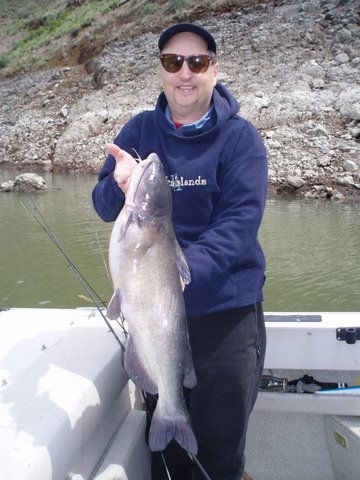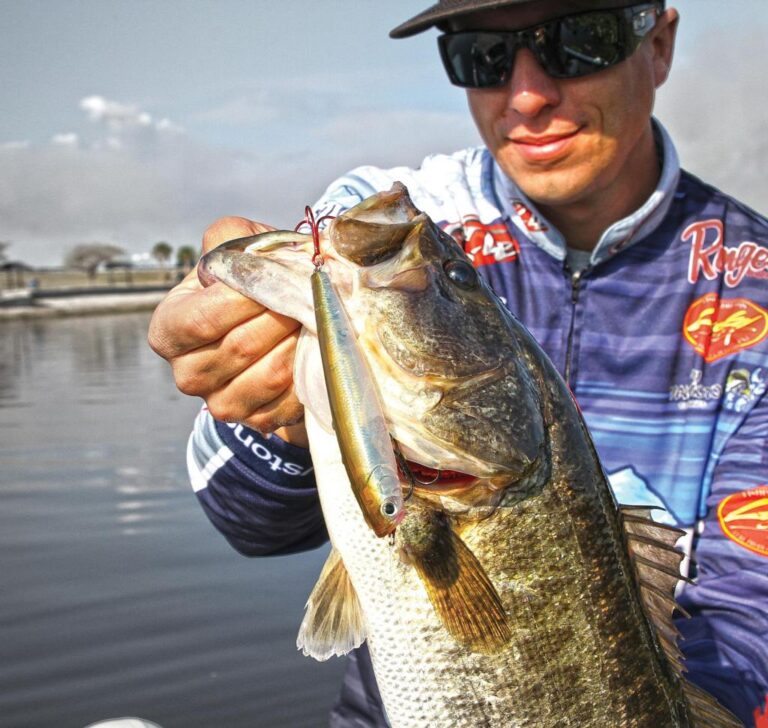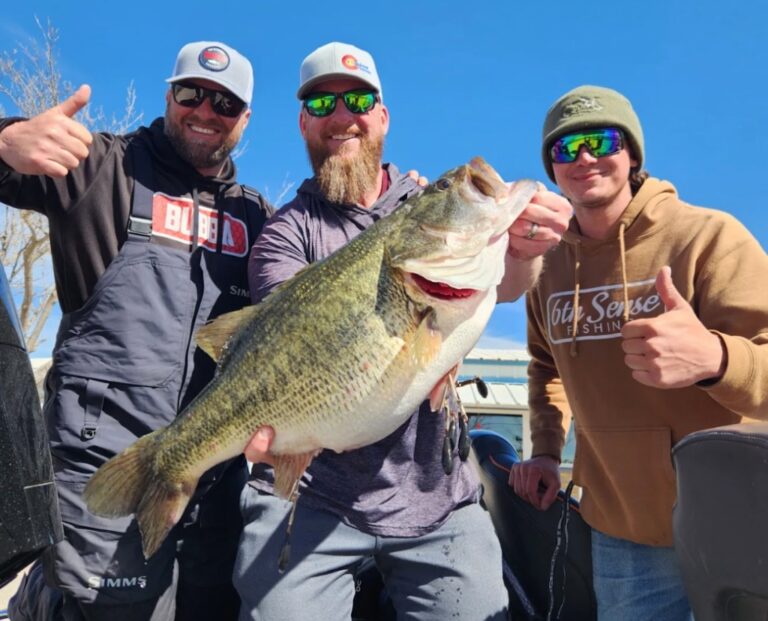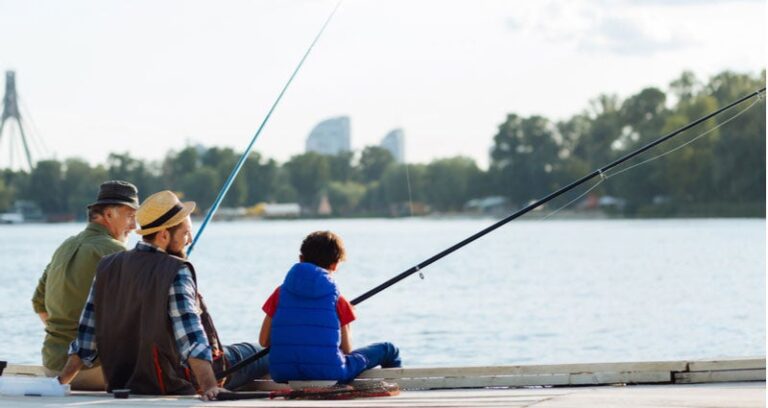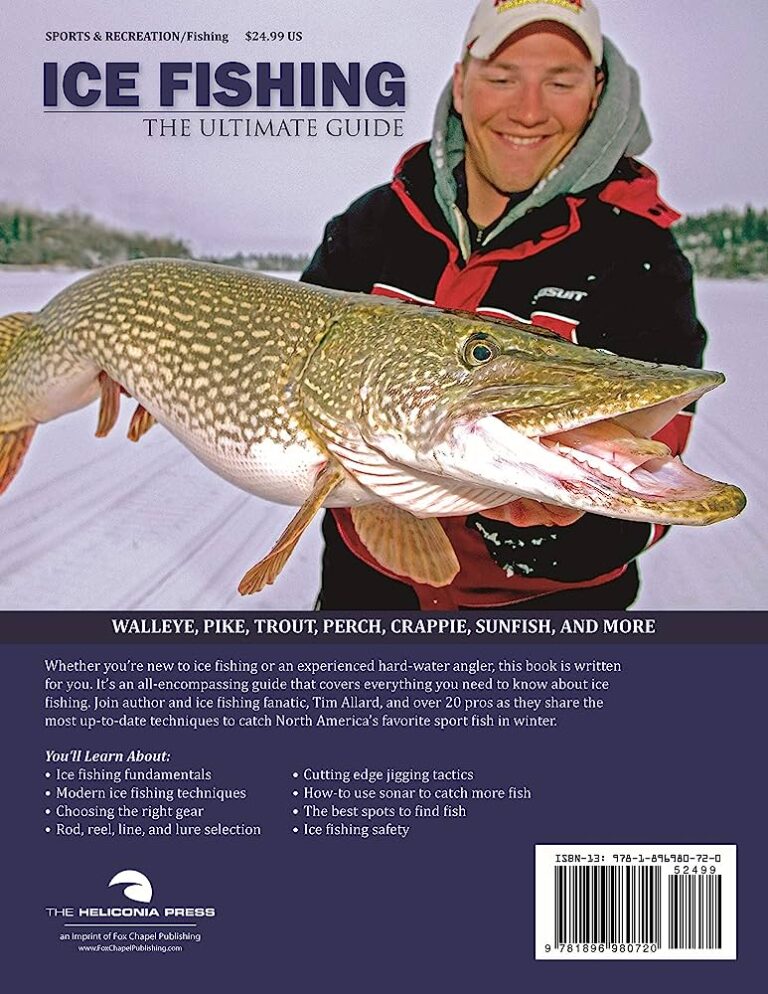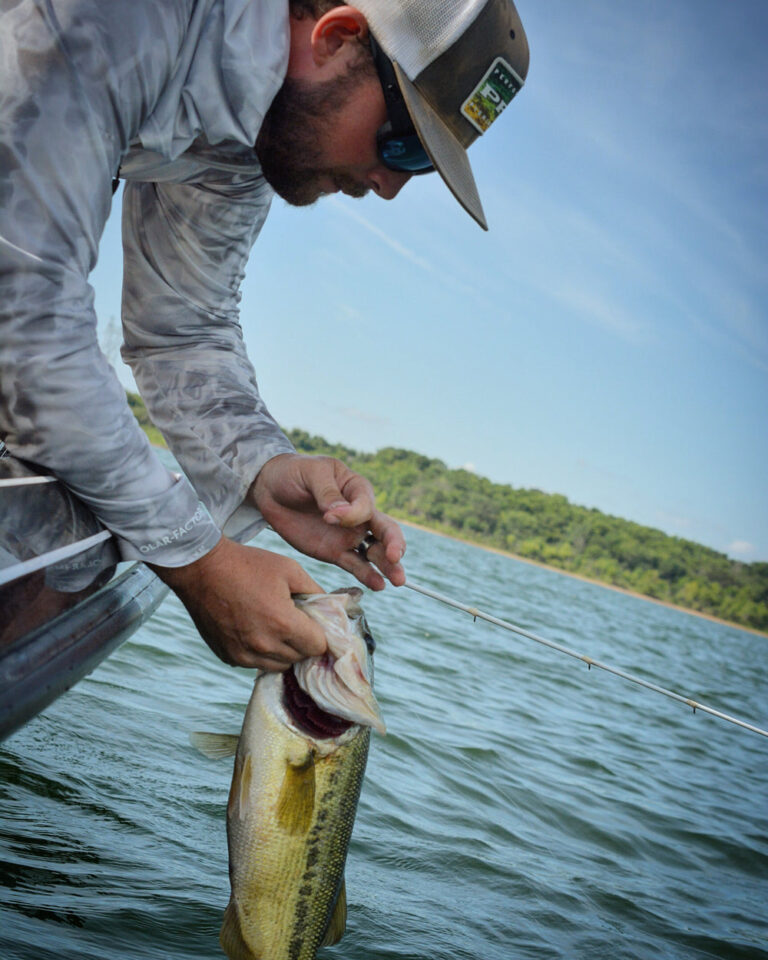Successful lake fishing is dependent on factors like correct lures, understanding the fish species, using quality equipment, and selecting the right spot. Fishing is an exciting hobby for many people, but it can also be frustrating when fish are not biting.
Successful lake fishing requires knowledge and preparation, from choosing the right equipment to knowing the best bait to use. Different types of fish require different techniques, so understanding the species you are targeting is crucial. Besides, the location you choose can also be a deciding factor in whether you catch anything.
In this article, we will provide some tips for successful lake fishing to help you catch more fish and make the experience more enjoyable.

Credit: www.flyfisherman.com
Master The Catch: Tips For Successful Lake Fishing
Lake fishing can be a relaxing and enjoyable activity. Whether you’re an experienced angler or a beginner, mastering the catch requires the right equipment, the right bait, and an understanding of lake conditions. In this section, we’ll go over the essential tips for successful lake fishing.
Importance Of The Right Equipment For Lake Fishing
Having the right equipment can make or break your fishing experience. Quality equipment can help increase your chances of catching fish and can make your fishing trip more comfortable. Below are some key points to keep in mind when selecting your lake fishing equipment:
- Choose rods and reels based on the type of fish you plan to catch and the technique you’ll use.
- Ensure that your fishing line is appropriate for the type and size of fish you’re targeting.
- Consider using a fishing vest or tackle box to keep your gear organized and easily accessible.
- Use high-quality polarized sunglasses to reduce glare from the water and improve visibility.
Choosing The Right Bait For Lake Fishing
Choosing the right bait is crucial to attracting fish to your line. Different types of fish are attracted to different types of bait. Here are some tips for selecting the right bait for your lake fishing trip:
- Research the fish in the lake and determine their eating habits and preferences.
- Live bait, such as worms and minnows, often work well for freshwater fish.
- Artificial lures, such as crankbaits and spinners, can mimic the movement and color of live bait.
- Consider using scent attractants to increase your bait’s effectiveness.
Understanding And Reading Lake Conditions
Lake conditions play a significant role in determining where fish are located and how they behave. Understanding these conditions can help you increase your chances of catching fish. Here are some things to keep in mind:
- Water temperature affects fish behavior and can influence where they are located in the lake.
- Wind direction can push food sources towards certain areas of the lake, attracting fish.
- Water clarity can impact a fish’s ability to see and detect bait, affecting their behavior.
- Bottom structure, such as drop-offs and weed beds, can provide cover and shelter for fish.
Mastering the catch requires a combination of the right equipment, the right bait, and an understanding of lake conditions. By following these tips, you can increase your chances of a successful and enjoyable lake fishing trip.
Importance Of The Right Equipment For Lake Fishing
Fishing in a lake can be an enjoyable and relaxing pastime, but without the right equipment, it can quickly become frustrating. Selecting the appropriate gear will enable you to make the most of your time on the water. Here are a few of the essential items you’ll need.
Types Of Fishing Rods For Lake Fishing
Selecting the appropriate fishing rod is critical for successfully catching fish in a lake. The following types of rods are recommended for lake fishing:
- Spinning rods
- Casting rods
- Fly fishing rods
Spinning rods are the most common type of rod for lake fishing and are ideal for casting lightweight lures or live bait. Casting rods are better suited for heavy lures and bait and are designed for optimal accuracy and distance.
Fly fishing rods, on the other hand, are intended for catching different fish species using special flies.
Choosing The Right Fishing Reel For Lake Fishing
Choosing the right reel is critical when it comes to fishing in a lake. There are three types of reels you can use for lake fishing:
- Spincast reels
- Spinning reels
- Baitcasting reels
Spincast reels are ideal for beginners since they are simple to use and require little maintenance. Spinning reels are the most versatile and can handle a wide range of lures and baits, making them the perfect choice for lake fishing.
Baitcasting reels are ideal for experienced anglers since they can handle heavier lures and provide increased accuracy and control.
Importance Of Having The Right Fishing Line
The quality of your fishing line will have a significant impact on your fishing results. The appropriate line will be determined by the type of fishing you intend to do and the size and species of fish you are targeting.
As a general rule, the lighter the line, the more fish types you can catch. Overall, the best fishing lines for lake fishing are fluorocarbon, monofilament and braided.
Tips For Selecting Fishing Hooks For Lake Fishing
Hooks are among the most crucial elements of your fishing gear. Choosing the proper hook size and style will be determined by the species you’re trying to catch and the bait you’re utilising. Here are a few pointers to keep in mind while selecting hooks for lake fishing:
- Use a larger hook when fishing for larger fish
- Select a hook that matches the bait’s size and weight
- When fishing with live bait, opt for a hook with a long shaft
- Circle hooks reduce injury to the fish and make it easier to release them back into the lake.
By ensuring that you have the correct fishing equipment for lake fishing, you will be able to enjoy a more successful and satisfying fishing experience.
Choosing The Right Bait For Lake Fishing
Tips For Successful Lake Fishing
If you’re looking for a relaxing weekend activity, lake fishing is an excellent choice. Catching fish can be challenging, but it’s a rewarding experience. Choosing the right bait can make or break your fishing success. Keep reading to learn about choosing the right bait for lake fishing.
Types Of Baits For Lake Fishing:
- Live bait
- Artificial bait
Live bait and artificial bait are the two primary types of bait used in lake fishing. Your choice of bait will depend on your personal preference and the type of fish you are targeting.
Lake Fish Species And Their Preferred Baits:
- Trout: Nightcrawlers, powerbait, salmon eggs
- Bass: Plastic worms, live bait, spinnerbaits
- Catfish: Chicken liver, nightcrawlers, stinkbait
- Panfish: Small jigs, live bait, worms
Different species of fish prefer different baits. It’s important to know which fish you are targeting and what bait works best for them.
Live Bait Vs. Artificial Bait For Lake Fishing:
- Live bait is more realistic and can attract more fish
- Artificial bait can be more versatile and easier to handle
The choice between live bait and artificial bait often comes down to personal preference. Live bait provides a realistic and tasty meal for fish, while artificial bait can be more versatile and easier to handle.
Choosing the right bait for lake fishing can make a significant difference in your success on the water. Knowing the types of baits available, the preferred baits for different fish species, and the differences between live and artificial bait will help you make an informed decision and have a more enjoyable fishing experience.
Understanding And Reading Lake Conditions
Fishing in a lake can be challenging, especially if you’re not familiar with the lake conditions. Understanding the various lake conditions is crucial to a successful fishing trip. Here are some tips on how to read lake conditions for a successful fishing experience.
How To Read Water Clarity Conditions For Lake Fishing
The clarity of the lake water can determine the type of fish you’ll catch and the best techniques to use. Here’s what you need to know about water clarity conditions for lake fishing:
- Clear water: In clear water conditions, fish can easily spot their prey, making them a bit difficult to catch. You’ll need to use lighter line and smaller lures to avoid scaring fish away.
- Murky water: In murky water conditions, fish rely on their sense of smell and vibration to locate prey. Choose lures with strong scent and vibration to attract fish in murky water.
- Stained water: In stained water, fish rely on their visual sense, but there’s enough visibility to see lures. Try using brightly colored lures to attract fish in stained water.
Seasonal Changes And Its Implications For Lake Fishing
Seasonal changes can have a significant impact on the behavior of fish and their feeding patterns. It’s important to understand these changes to have a successful fishing trip. Here are some seasonal changes and their implications for lake fishing:
- Spring: During spring, fish move into shallower water to spawn, making it an excellent time to catch them. Look for spawning beds, and use lures that mimic their natural prey.
- Summer: In summer, fish can become inactive and seek out cooler water temperatures to survive. Look for areas of the lake with cooler water temperatures and fish during early mornings or late evenings.
- Fall: In the fall, fish begin to feed aggressively to prepare for the winter months. Fish during the midday when the water is at its warmest using fast-moving lures.
- Winter: Winter is not ideal for fishing in most lakes, but if you can find a heated vent, the fish will gather for warmth and be more active.
Understanding Lake Depths For Successful Lake Fishing
Knowing the depth of the lake can help you identify where the fish are located and the type of fishing techniques to use. Here’s what you need to know about lake depth for successful lake fishing:
- Shallow water: During hot summer days, fish move into shallow water to find cooler areas, making it an excellent time to fish in shallow water.
- Deepwater: During the colder months, fish move into deeper water to look for warmer temperatures. Use lures that sink fast and reach the bottom to catch deepwater fish.
- Middle water: During the spring and fall, fish are usually found in middle water, making it an excellent time to use a variety of fishing techniques, such as trolling or suspending bait.
Safety Measures For Lake Fishing
Tips For Successful Lake Fishing: Safety Measures For Lake Fishing
Fishing on a lake can be both fun and relaxing, but it’s important to remember that safety should always be your top priority. To ensure your lake fishing experience is enjoyable and safe, there are several safety measures you need to take.
Importance Of Understanding Water Safety Guidelines
Before you start lake fishing, it’s important to be aware of the proper water safety guidelines. Here are some tips to help you stay safe:
- Always wear a life jacket when on the water, regardless of your swimming ability.
- Ensure you’re familiar with the water depth and any underwater hazards such as sudden drop-offs, submerged rocks, and snags.
- Avoid fishing alone and always let someone know where you’re going and when you plan to return.
- Don’t consume alcohol when you’re fishing, as it can impair your judgment and reaction time.
- Be cognizant of sudden changes in weather and water conditions and act accordingly.
Basic First-Aid Skills For Lake Fishing
In any outdoor situation, accidents can happen. Therefore, it’s essential to be prepared by having basic first-aid skills and a well-stocked emergency kit. Here are some of the basic first-aid skills you should have:
- The ability to stop bleeding and dress wounds.
- Understanding how to give cpr and basic resuscitation techniques.
- Treating common injuries like sprains, burns, and insect bites.
- Knowing how to use medication for pain relief in case of an emergency.
Understanding Weather Conditions For Safe Lake Fishing
Weather conditions can be unpredictable when you’re lake fishing, so it’s vital to be prepared ahead of time and understand the potential risks they can bring. Here are some weather-related safety tips:
- Always check the weather forecast before you go fishing, and stay aware of changes in conditions throughout the day.
- Take proper shelter in the case of lightning or heavy rain.
- Prepare a list of emergency contacts in case of dangerous or alarming weather conditions.
Now that you have these essential safety measures to keep in mind while lake fishing, remember to always prioritize safety for an enjoyable experience.
Conclusion
The joy of successful lake fishing is incomparable, but it requires patience, knowledge, and commitment. By following the above tips, you will undoubtedly increase your chances of catching fish, but remember to stay flexible and adapt to changing situations. The key to success is to research the lake’s terrain and understand the fish you are seeking to catch.
Develop a strategy that incorporates the right equipment, bait, and presentation tactics. Lastly, respect nature and be environmentally conscious when angling. By giving back to the ecosystem, you will have a healthier and more prosperous fishing experience. If you do not succeed on your first try, do not get discouraged and keep practicing.
With time and experience, you will become a seasoned angler and enjoy the pleasure of landing a big catch. Happy fishing!

